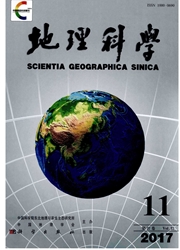

 中文摘要:
中文摘要:
琉球群岛何时开始出现人类?琉球人来自哪里?琉球民族是一个独立的民族还是大和民族的一个分支?这些关于琉球民族本质的问题目前学术上尚存争论。运用文献分析法和综合分析法,对考古学、文化人类学和群体遗传学的研究成果进行系统整理和分析评价。在此基础上,对琉球群岛人类种群的起源、迁移以及琉球人与东亚地区其他民族之间的亲缘关系进行讨论。考古学研究发现,在旧石器时代琉球群岛已有人类活动的痕迹。群体遗传学关于人类线粒体DNA与Y染色体解析以及基因组比较研究证明,起源于非洲的古人类,大约在新生代第四纪更新世晚期迁移至东南亚地区,之后逐渐扩散至日本列岛和琉球群岛成为现代日本人和琉球人的祖先。琉球人与日本人的亲缘关系密切,都保留着阿伊努人的生物学遗传特征。考古学发现和文化人类学对于文化相近性的分析显示,冲绳诸岛以北的北琉球文化与日本的绳文文化亲缘关系密切,先岛诸岛的南琉球文化与南岛系文化更为接近。此外,14世纪以后在琉球王国与东亚各国的贸易交流过程中,来自中国大陆、朝鲜半岛和东南亚地区的一些文化要素也渗透到传统的琉球文化之中。
 英文摘要:
英文摘要:
When did human begin to appear in the Ryukyu Islands? Where did Ryukyu people come from?Was Ryukyuan an independent nation or just a branch of Yamato? These questions about Ryukyuan nature are still under debating at present.Using literature analysis and comprehensive analysis method,author of this paper analyzed and evaluated the previous archaeology,cultural anthropology and population genetics studies about Ryukyu people.This article is trying to reveal the human origins and migrations in the Ryukyu Islands and the genetic relationship between Ryukyu people and other ethnic groups in East Asia.Archaeological findings pointed out that traces of human activities appeared in the Ryukyu Islands as early as Paleolithic period.The human mitochondrial DNA and Y chromosome analyses and the genome comparative researches proved that ancient humans migrated to the Southeast Asia from Africa at the late Pleistocene.Afterwards they spreaded to Japanese archipelago and the Ryukyu Islands and became the ancestry of modern Japanese and the Ryukyu people.The genetic relationship between Ryukyu people and Japanese is very close and both retain biological genetic characteristics of Ainu.Archaeology and cultural anthropology for similar culture analyses evidenced that there was a close relationship between the culture of northern the Ryukyu Islands and the Jyomon culture of Japan,but the southern Ryukyu culture was closer to the Austronesian culture.In addition,after the14 th century,some cultural factors from mainland China,Korean Peninsula as well as Southeast Asia began to penetrate into the traditional culture of the Ryukyu Islands through trade exchange with these countries.
 同期刊论文项目
同期刊论文项目
 同项目期刊论文
同项目期刊论文
 期刊信息
期刊信息
